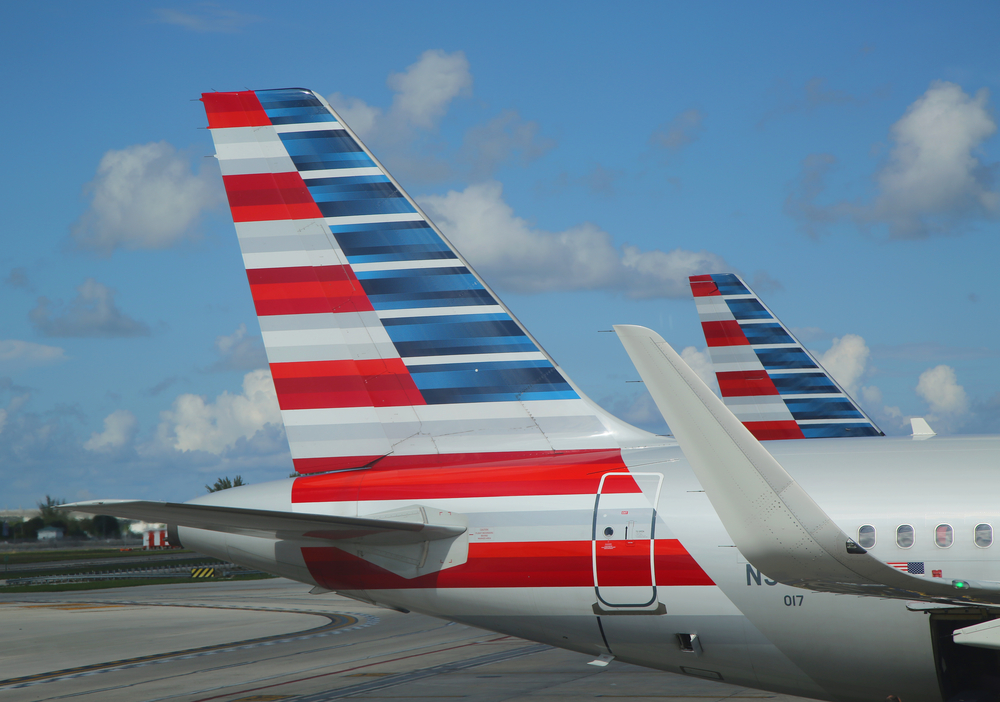Wheels Up: Wheelchairs Take Focus After American Denies Flyer over Chair Weight

Are wheelchair policies quietly changing at American Airlines? One flyer claims he was turned away by the carrier over the weight of his mobility device, while the Fort Worth-based carrier says the issue wasn’t with the chair but with the aircraft type.
When a flyer with a wheelchair, scooter, or other mobility device approaches the gate, they are often at the mercy of their airline to not only accommodate their disability, but also ensure that their device arrives on time and without damage. What happens when an aircraft physically cannot accommodate that device? NPR reports wheelchair-bound flyer John Morris was denied boarding, because his wheelchair was overweight.
Is Acceptable Weight Based on Risk of Damage?
On Oct. 21, 2020, Morris arrived at an airport in Gainesville, Florida to board a flight bound for the west. He is a triple-amputee who cannot get around without his 400-pound wheelchair, outfitted with specific equipment to best accommodate him.
When it came time to travel, Morris says he was turned away, with the airline claiming that the wheelchair was too heavy to travel aboard the aircraft. He claims this policy is unique to American, and other airlines do not have the same issue. When he filed a complaint against American, the airline reportedly responded that Morris was denied boarding because of the wheelchair weight, along with an increasing number of damaged mobility device claims for the carrier.
“She [an American Airlines representative] told me that the airline had implemented this new policy because they were damaging a large number of power wheelchairs loading them onto regional aircraft,” Morris told NPR. “And that in order to protect my wheelchair, they were no longer willing to accept it on board.”
To the argument that more wheelchairs are traveling with damage, federal data notes that just over one percent of mobility devices boarded to aircraft each month are mishandled during flights. The September 2020 Air Travel Consumer Report notes in the month of July 2019 – during pre-pandemic conditions – 1.71 percent of the 66,740 mobility devices loaded to aircraft were mishandled. On American alone, 349 of the 10,857 wheelchairs and scooters were damaged, reflecting an industry-high 3.21 percent.
American Responds to FlyerTalk’s Wheelchair Questions
FlyerTalk reached out to American to learn more about their policy. According to a spokesperson: “Each aircraft type has specific cargo floor weight and door dimension restrictions that are established by the aircraft manufacturer. These restrictions are accounted for in our FAA-approved manuals, which are intended to ensure consistent high levels of safety.”
In regards to specific aircraft, the American statement notes that for CRJ-series aircraft, the wheelchair weight limit is 300 pounds. Aboard Embraer aircraft, the maximum wheelchair weight is 400 pounds.
We asked American if their rules were universal across their network, or if regional partner airlines provided their own rules. The American spokesperson did not respond to our question, but instead offered the following response:
“We’re committed to providing a positive travel experience for all of our customers. We do everything we can to safely accommodate mobility devices across our operation, and we will continue to proactively work with customers traveling with mobility devices.
We understand how critical these devices are to our customers, and in the past our team has worked with passengers who have wheelchairs or mobility devices that exceed the maximum weight limitations on a case-by-case basis. In some instances, removing the batteries, which can weigh up to 50 pounds each, is a solution. In some cases, we have disassembled parts of the devices and reassembled them
Our team has begun a review of how we can both ensure high safety standards and protect the integrity of heavy mobility devices consistently across our operation, and our commitment to taking care of all of our customers during their journeys is unchanged.”
— American Airlines Statement
What Happens to Flyers Who Are Stranded Because of Wheelchairs?
Under the Air Carrier Access Act, airlines cannot deny a passenger boarding because of a disability. Experts speaking to NPR say that creating limitations on wheelchair weight could be a violation of the act.
Wheelchair-bound flyers have the same right to access as all others. However, the addition of a mobility device may create complications. Flyers should always contact their air carrier ahead of time to see if there are any concerns with their device ahead of time, and if alternative flights are required to ensure the device can travel with the flyer. Those who are denied boarding for any reason should consider filing a consumer complaint with the U.S. Department of Transportation.






















All aircraft that have been certified for commercial carriage of passengers have a long list of operational parameters which must not be exceeded. Maximum take off weight, fore and aft balance limits, speed limits, G load limits and on and on ... including floor distributed and point load limits. These aren't touchy feely negotiable limits as in "we're going to make an exception for your mature comfort elephant on this occasion, but don't do it next time", they're the kind of limits you'd rather hear about (and view the smoking wreckage of) on the evening news headlines than be part of the passenger load that were subject to the limits being flouted for the sake of PC correctness 'accommodations'. Get used to them, aircraft design limits DON'T understand Political Correctness.
As long as we're on it, let's talk about how aisle width is too narrow for anyone with a mobility device to manage getting to the toilet. In addition, toilet stalls are far too small for a disabled person to use. They are permitted to fly, but cannot use the facilities while on board. It's a travesty.